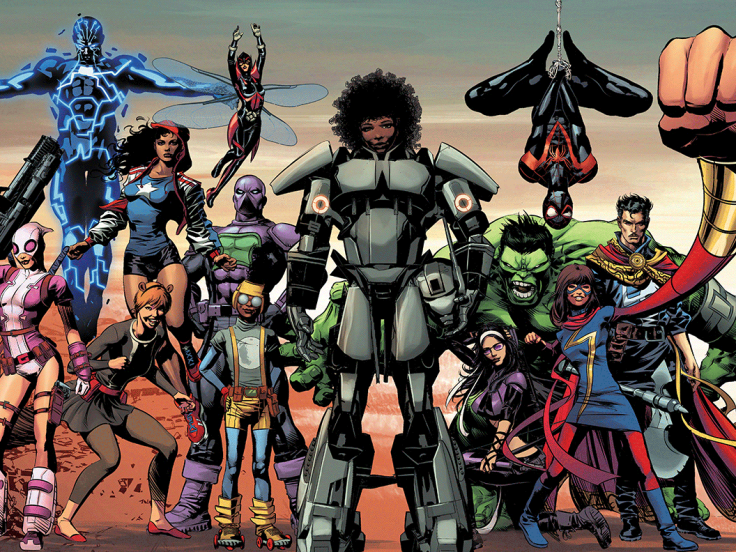Diversity as it pertains to pop culture garbage isn’t a topic that particularly interests me. In fact,it does the opposite. It takes effort to remain silent during the unremitting minorities vs. nerds debates, as I find both parties often champion sentiments so piddling they end up validating the concerns of the other.
You would think a wrangle as loaded as “what our modern myths say about the state of our country as a whole” would produce more astute talking points than: “Mary Jane can’t be black, because she has to have red hair!” or “Make Danny Rand Asian because Kung Fu!”
Both outlooks are wrong. A good character isn’t defined by physical attributes, and diversity for diversity's sake only reinforces the barricades between us. The healthy middle has to begin with earnest storytelling. There’s a reason Wonder Woman and Miles Morales struck a chord with audiences worldwide, and 2015’s Ghostbusters did not.
I mention Wonder Woman and Morales in particular because they both corroborate my thesis under its most extreme conditions. Wonder Woman had to follow three critical duds from its studio and reestablish faith in a tentpole franchise all while being an authentic adaptation of the most renowned female superhero in comic book history. It effectively did all three, breaking a record or two along the way. It chorused inspiring themes of liberation and equality, but it made sure it was a good film first. Patty Jenkins understood that that’s what Wonder Woman’s vital message deserved; not the bare bones of a movie to hang itself on, but an undying foundation as strong and as durable as the hero at its center.
The story of Miles Morales isn’t much different. Ultimate Fallout #4, much like the Ghostbusters reboot, featured a brand-new character taking up a mantle previously held by a culturally revered icon. Initially, the senseless regressive grumbles shrieked by the sexist dipshits haunting Ghostbusters comment sections were present here too. But even with something as bold as the announcement of aNot-Caucasian Spider-an they were swiftly drowned out by the sea of fans eager to lionize Bendis’ and Pichelli”s masterful run. Its social impact was profound by way of subtlety as opposed to the roaring fan fare that fueled Wonder Woman. Miles Morales is biracial, but it informs his character without defining it. He’s not a number, or a political emblem, he’s a self-effacing dork from Brooklyn. I can relate.
People don’t like to be ventriloquized. Characters should not serve as the voice for their entire race or gender, less they limit diversity to the physical. We shouldn’t need characters to look like us to be able to relate to them, or let it get in our way. When judging comics and movies, success comes from creating stories that feel real and personal. Do you want to tear down barriers? Aim for the human element and the rest will be implicit.
Lastly, however you feel about this article, or the casting of Ghost in the Shell , or Riri WIlliams, or whatever the last thing was or the next thing is gonna be, don’t comment, on anything, ever. Either buy the product or don’t, we don’t need to talk about why or why not. There are more important things to start race wars over than Mary Jane Watson. Having said that, if Hollywood ever makes Blank-Man a girl I WILL BURN THAT CUCK CAPITAL TO THE GROUND.

















